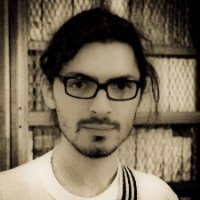
I am happy to have invited Dr. Andrés Henao Castro to come to ACC at University of Cape Town for a month in July/August. Andrés is a Colombian who wrote his dissertation at the University of Massachusetts on political theory, working through the classics, but with a viewpoint from the immigrant, a very important topic from Europe, USA to South Africa these days. He writes about his dissertation:
My dissertation offers a new framework through which to theorize contemporary democratic practices by attending to the political agency of unauthorized immigrants. I argue that unauthorized immigrants themselves, by claiming their own ambiguous legal condition as a legitimate basis for public speech, are able to open up the boundaries of political membership and to render the foundations of democracy contingent, that is to say, they are able to reopen the question about who counts as a member of the demos.
 ANTIGONE CLAIMED, “I AM A STRANGER”: DEMOCRACY, MEMBERSHIP AND UNAUTHORIZED IMMIGRATION
ANTIGONE CLAIMED, “I AM A STRANGER”: DEMOCRACY, MEMBERSHIP AND UNAUTHORIZED IMMIGRATIONPhD dissertation by Andrés Fabián Henao Castro
My dissertation offers a new framework through which to theorize contemporary democratic practices by attending to the political agency of unauthorized immigrants. I argue that unauthorized immigrants themselves, by claiming their own ambiguous legal condition as a legitimate basis for public speech, are able to open up the boundaries of political membership and to render the foundations of democracy contingent, that is to say, they are able to reopen the question about who counts as a member of the demos. I develop this argument by way of a close reading of Sophocles’ tragedy Antigone, which allows me to dramatize democracy’s vexed relation to the question of foreignness and to challenge traditional concepts of democracy, political membership and agency.
My turn to the classical Greek tragedy of Antigone is doubly motivated. First, it allows me to translate the political agon (conflict) staged by unauthorized immigrants today in order to read its rival narratives of membership. It provides me with a frame by which to link the politics of burial at the borders with the public protests performed by unauthorized immigrants in the streets of Tucson and Paris. Secondly, it allows me to decenter the frame, to facilitate a new trajectory for this classical tradition against the dominant reception of Antigone as civically circumscribed to one polis. Exploring Antigone’s alternative subtext of metoikia helps me to contest the idealized construction of Athenian culture that has influenced Western European ideals. Filling the gaps in our accounts of democratic theory, this research will contribute to our understanding of the phenomenon of alienage and provide a deliberative platform through which to articulate questions surfacing from this other form of political membership. My research also provides future scholarship with a theoretical basis for a broader interrogation of political agency and opens up a different trajectory for the reception of the classical tradition and for different inter-disciplinary ways of doing political theory.


